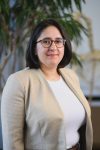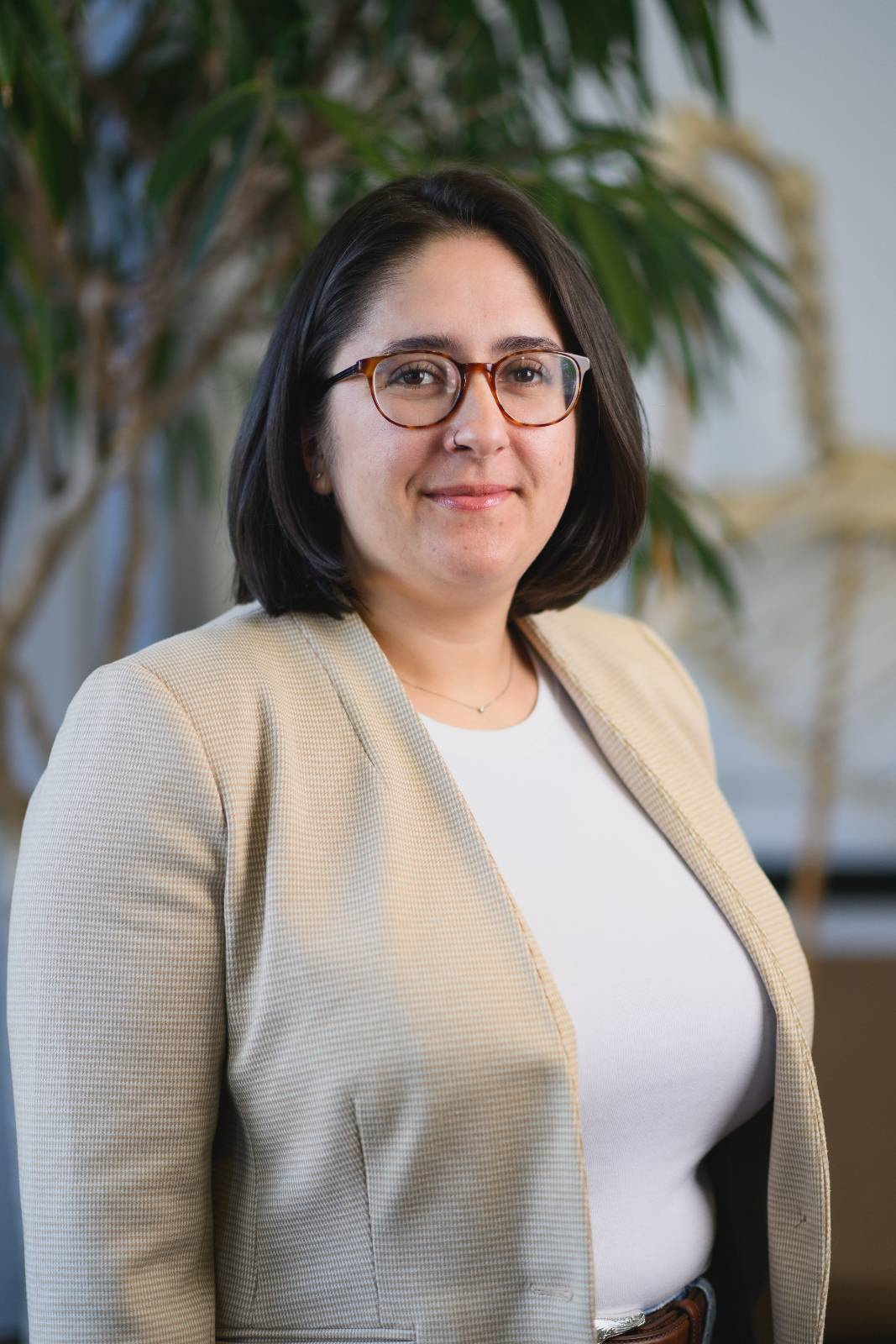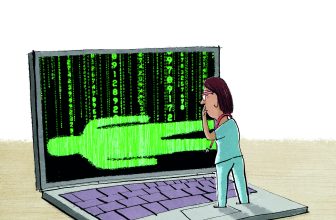
Brenna R. Pugliese, DVM, MS, DACVS-LA
 What is your current career stage? With what institutions and departments are you affiliated, and what position(s) do you hold?
What is your current career stage? With what institutions and departments are you affiliated, and what position(s) do you hold?
I am currently an NIH T32 Postdoctoral Fellow and PhD Student in the Comparative Medicine and Translational Research Training Program at North Carolina State University (NCSU). I am a large animal surgeon by training, having achieved board certification in 2024.
Can you give us a brief overview of your research?
As a PhD student in the Schnabel Lab at the NCSU College of Veterinary Medicine, I am studying mechanisms of osteoarthritis (OA) in horses and how clinically applied orthobiologics alter gene expression in joint cells. I am performing the first in vitro studies investigating how the intra-articular therapy, alpha-2 macroglobulin (A2M), works within the joint to reduce inflammation that drives OA and causes pain and lameness in horses. My research will not only have an immediate impact in the veterinary clinic where A2M is currently being used clinically to treat horses with this condition but also has translational implications in the study of OA in other species. My research aims to elucidate the mechanisms by which this orthobiologic is altering the joint environment to better inform clinical decision making and use of A2M across species.
How did you get involved in orthopaedic research?
I got involved with orthopaedic research and the ORS early on as a veterinary student. I was very fortunate to meet my first mentor in the field, Dr Carl Kirker-Head, as an undergraduate student. He encouraged me to pursue my interest in equine biomechanics and to ultimately pursue a Master of Comparative Biomedical Sciences degree along with my DVM. In my Masters work we validated novel rehabilitative legwear for horses with flexor apparatus injuries, which really sparked my love for translational and preclinical research. I was lucky to attend my first ORS Annual Meeting in 2015 and have been involved in the ORS in various capacities ever since, having the honor of presenting at the meeting in 2022 where I shared my resident research project and currently as a social media committee member!
Have you had any mentors who have shaped your journey so far?
I have been extremely fortunate to have multiple outstanding mentors along my training journey. As I mentioned briefly, Dr. Carl Kirker-Head was instrumental in fostering my passion for orthopaedic research, not only providing me with an excellent foundation in study design and scientific communication but showing me how much fun it can be to work in an interdisciplinary team. Today, I am so fortunate to be mentored by Dr. Lauren Schnabel at NCSU, who has similarly invested countless hours in one-on-one mentoring and fully supporting my creativity and growth as a clinician scientist. Both of these individuals are exceptional equine surgeons and orthopaedic researchers that have demonstrated to me, firsthand, how critical it is to have a strong positive influence and mentor in your corner while navigating life as a trainee!
What is one accomplishment you are really proud of?
I was recently honored to receive the Dr. Monica Menard Award for Excellence in Veterinary Pathobiological Research. This distinction is awarded to an NCSU trainee that has an enthusiastic approach to research and an unwavering positive attitude – knowing that others see these qualities in me is so motivating, especially given the challenges we face (and overcome!) as trainees pursuing orthopaedic research!
What are your career goals?
I see my future career at the intersection of clinical large animal surgery and musculoskeletal research. I love teaching, and one of the greatest joys for me has been mentoring students. I hope to pursue orthopaedic research that directly helps my veterinary patients while contributing to the advancement of translational science that benefits all species. Veterinarians are uniquely positioned in this way to have such a broad and impactful career helping humans and animals, and I can’t see myself doing anything else. Hopefully, you’ll find me at a veterinary teaching hospital doing clinics, research and teaching in the near future.
What are you most excited about in the future of orthopaedic research?
I’m most excited to see how orthopaedic surgeons and researchers will be able to incorporate AI in their clinical practice and research. This field has been advancing rapidly and is so intriguing to me. I am fortunate to be doing some early work to incorporate machine learning into our veterinary toolbox to identify pain in horses, and I’m eager to see where these novel advancements take us both in the lab and in the clinic.
Any personal interests or hobbies you would like to share?
This probably comes as no surprise, but my biggest pastime is being a horse girl – I have a 16-year-old Arabian gelding named Vinny and I love to decompress with him at the barn or on the trail.
What advice would you give to other students or early-career professionals who are starting out in the field?
My biggest advice to other students and early career surgeons is to find your people, including steadfast mentors, and to pay that support forward to those that come after you. Imposter syndrome is a very real phenomenon, and it takes a village to succeed in pursuing this career path. There’s nothing more rewarding than tackling a tough case or a difficult research question with a team and seeing all your hard work pay off for your patients in the end!



